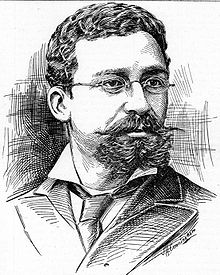Traveling in Europe (as an American), it's easy to be jealous of the past, the overwhelming physicality of cathedrals and castles, ruins and walls, stone roads with thousand-year-old ruts. We need a Faulkner to remind us that we are saturated in the past, too (and a Woody Allen to remind us that Faulkner reminded us). Our past is in the stories we tell, and mistake, and repeat, and tell falsely, and misattribute, and misrepresent.
The great error, of course, is thinking that the past is gone. But the other (greater?) error is to have a crappy copy of the past. A cheap knockoff past, that looks, from one angle, and in a dim light, like the past. But it's beyond fake; it's a toy, a cardboard cutout that could never have worked.
 Or worse, it's a working model, like a model railroad: it chugs along, clean and on-schedule and under control in its little world; but again, the past isn't that utopian memory. It's got an infinite number of moving parts, it doesn't run on some magical plug in outside the universe; it's coal fired and the coal has to be mined by dirty men and shoveled with dirty shovels and Jesus everything is dirty and your lungs are eventually dirty and you die.
Or worse, it's a working model, like a model railroad: it chugs along, clean and on-schedule and under control in its little world; but again, the past isn't that utopian memory. It's got an infinite number of moving parts, it doesn't run on some magical plug in outside the universe; it's coal fired and the coal has to be mined by dirty men and shoveled with dirty shovels and Jesus everything is dirty and your lungs are eventually dirty and you die. But refusing to be bound by the past is one of the freedoms of America. And freedoms are never free ("Thank a serviceman" the bumper sticker goes on). Belle da Costa Greene passed for white, broke free of the centuries of being Black in America; she spent (incredibly well) vast sums of money collecting the best of the past for J.Pierpont Morgan, and never spoke to her father, Harvard-educated lawyer and diplomat Richard Greener.
But refusing to be bound by the past is one of the freedoms of America. And freedoms are never free ("Thank a serviceman" the bumper sticker goes on). Belle da Costa Greene passed for white, broke free of the centuries of being Black in America; she spent (incredibly well) vast sums of money collecting the best of the past for J.Pierpont Morgan, and never spoke to her father, Harvard-educated lawyer and diplomat Richard Greener.Richard Greener lived at 5237 S. Ellis, a few blocks from where I sit now. The apartment building he lived in was, evidently, home also to Ida Platt, admitted to the Illinois bar in 1894 as the first Black female lawyer in the state. She was making a living in 1910 passing as a white woman. In 1920, while Platt was still practicing, Violette Anderson became the (second!) first Black female lawyer in Illinois. While Richard Greener watched, Ida Platt gave up her place in history, for flourishing in the present, just as his daughter had. The past came and went and folded back over itself.
And the apartment building is gone, now, replaced by townhouses. The past cropped up a few miles away, in Englewood, though--unevenly distributed.

No comments:
Post a Comment